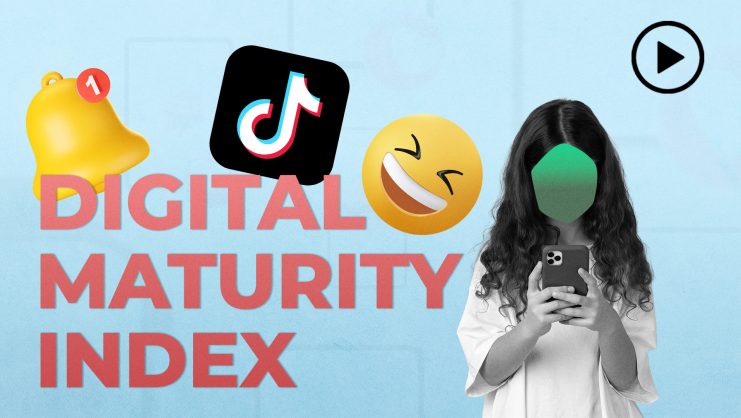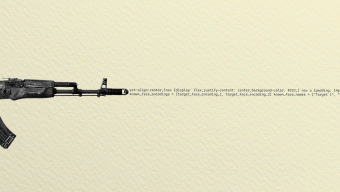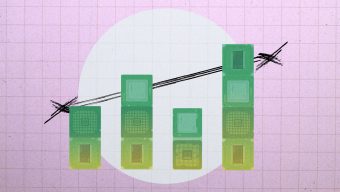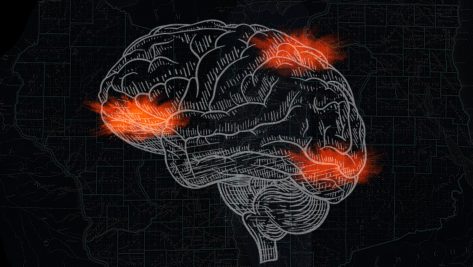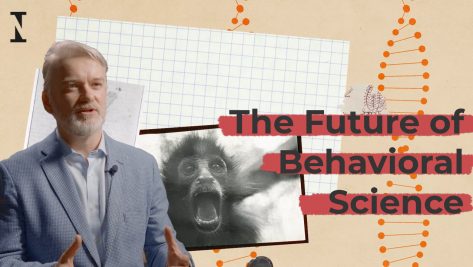“People are happier when they can fully develop their potential.” This is the sort of saying you might find plastered on the wall behind your company’s reception desk, but the underlying concept—eudaimonia—is precisely how Aristotle defined happiness more than two thousand years ago. One of the biggest obstacles to happiness in today’s world is the continuous increase in distraction and, consequently, the growing difficulty of concentration.
New data shed light on the loss of attention brought about by the constant use of digital applications. According to Udemy in Depth: 2018 Workplace Distraction Report, three out of four millennials and members of Generation Z describe themselves as distracted at work, while half say that they are less productive and not performing as well as they should.
Data on time spent using digital applications reveal striking trends. On average, we devote more than five years of our lives to social media and at least two hours and fifty-one minutes each day to our mobile phones. In a given day, we unlock our screens more than 150 times, switch from one app to another nearly 600 times, and check our email 88 times.
Our phones are modern-day Trojan horses that threaten the strength of our concentration. An estimated 66% of the population suffers from nomophobia—the fear of being without one’s mobile telephone.
It should come as no surprise if recruiters at leading companies start prioritizing focus and concentration over IQ tests and other skills.
The risks of multitasking
One of the current dangers is that regular multitasking is encouraged and considered a valuable professional skill. In many cases, multitasking actually threatens productivity and prevents us from engaging in sustained concentration at work and in our personal lives.
According to Cal Newport, Associate Professor of Computer Science at Georgetown University, one of the negative consequences of multitasking is the problem of “attention residue.” When you shift your focus from one task to another, a tiny bit of your attention remains stuck on the initial task. This residue effect is especially strong when the task you shift away from remains unfinished. Who among us has not kept thinking about emails, articles, and jobs left undone throughout the day, despite being occupied with other tasks? Attention residue builds up as we constantly switch from one task to another, wearing down our capacity for attention.
Our phones are modern-day Trojan horses that threaten the strength of our concentration.
Will focus and concentration replace IQ?
The inability to concentrate is a disorder that starts affecting professionals while they are still in school. According to Jennifer Shore (“Social Media Distractions Cost U.S. Economy $650 Billion”), students who succumb to distractions while studying see their GPA fall by a full point and score 18% lower on their final exams. According to Glenn Wilson of London’s Institute of Psychiatry, telephones and other technological devices and applications can cause a 10% decrease in IQ—twice the impact of cannabis consumption.
Distraction is a growing concern in many countries. According to the American Psychological Association’s 2018 Stress in America survey, two thirds of the country’s population feels that disconnecting from digital media is important for health. Paradoxically, the people most committed to limiting technology in their everyday lives are the great gurus of Silicon Valley, who have famously implemented digital detox periods.
Therefore, it should come as no surprise if recruiters at leading companies start prioritizing focus and concentration over IQ tests and other skills. Concentration enables professionals to improve their performance and complete complex tasks that require continuous learning within the company.
One of the current dangers is that regular multitasking is encouraged and considered a valuable professional skill.
Navigating the attention economy
Just over two years ago, The Economist ran a cover story entitled “The world’s most valuable resource is no longer oil, but data.” The biggest Western companies—Google, Amazon, and Facebook—have business models based on data, so they have to capture our attention. We can no longer attribute our distraction and technological dependence solely to boredom, anxiety, stress, low self-esteem, or other psychological ailments. We are up against some of the world’s most talented professionals, who are vying to compete for and capture a valuable limited resource: our attention.
Social networks, the digital world’s greatest competitors for our attention, have tapped into our desire for social recognition and our fluctuating levels of dopamine—the neurotransmitter behind the shot of pleasure that hits your brain with every new “like.” Some very interesting experiments by Robert Sapolsky, a professor of biology at Stanford University, have shown that the anticipation of something that could happen—”the magic of maybe”—causes dopamine levels to rise. Dopamine explains the positive reinforcement of pleasure that you experience every time you check your apps for new “likes” or incoming messages. The constant desire to check social media threatens our ability to control our attention and, therefore, our productivity at work and in our personal lives.
Concentration paves the way towards satisfaction and well-being: the only recipe for happiness.
Exercising your attention muscle
For all the reasons outlined above, it is not easy to develop concentration skills. Experts like Cal Newport have struck back with theories such as digital minimalism, a work philosophy that calls for a more optimized and effective use of technologies, focusing solely on tools that actually add value.
Developing the attention muscle requires behaviors and practices that come from within each individual. These efforts are necessary in order to boost the productivity of companies and institutions in rapidly changing contexts characterized by complex challenges that demand continuous learning, which is only possible through focus and concentration. But they are also essential for people to achieve their goals, give the best of themselves, and reach a state of eudaimonia. In short, concentration paves the way towards satisfaction and well-being: the only recipe for happiness.
© IE Insights.




